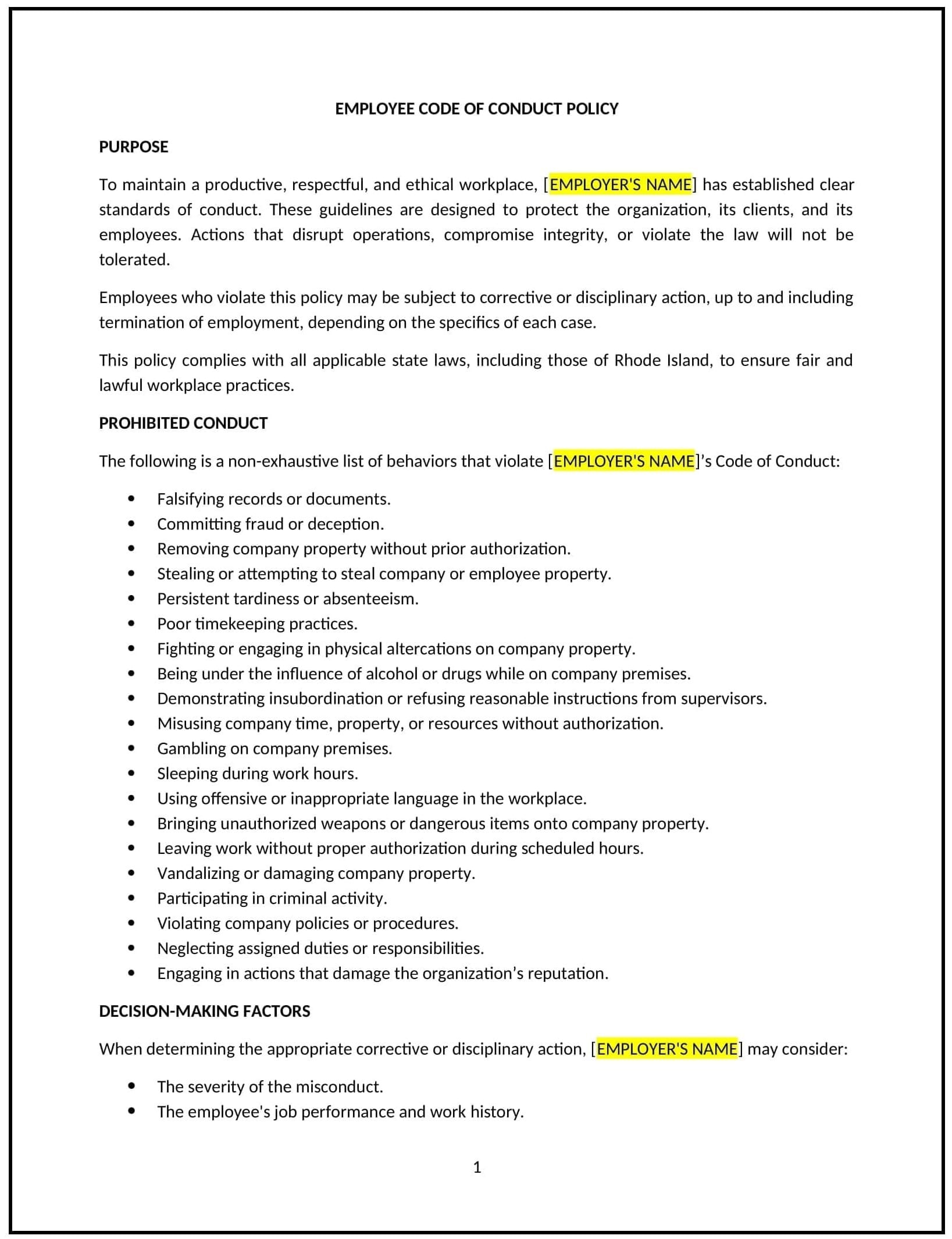Standards of conduct policy (Rhode Island): Free template
Got contracts to review? While you're here for policies, let Cobrief make contract review effortless—start your free review now.

Customize this template for free
Standards of conduct policy (Rhode Island)
This standards of conduct policy is designed to help Rhode Island businesses establish clear expectations for employee behavior in the workplace. It outlines acceptable conduct, disciplinary procedures, and reporting mechanisms for violations.
By adopting this policy, businesses can promote professionalism, maintain a positive work environment, and reduce the risk of conflicts.
How to use this standards of conduct policy (Rhode Island)
- Define acceptable behavior: Outline expectations for professionalism, respect, and ethical behavior.
- Address prohibited conduct: Specify behaviors that are not tolerated, such as harassment, discrimination, or violence.
- Establish reporting procedures: Provide steps for employees to report violations of the policy.
- Outline disciplinary actions: Detail consequences for violating the policy, such as warnings or termination.
- Train managers: Educate supervisors on enforcing the policy and addressing violations.
- Review and update: Assess the policy annually to ensure it aligns with evolving business needs and employee expectations.
Benefits of using this standards of conduct policy (Rhode Island)
This policy offers several advantages for Rhode Island businesses:
- Promotes professionalism: Sets clear expectations for employee behavior, fostering a respectful work environment.
- Reduces conflicts: Addresses potential issues before they escalate, maintaining a positive workplace culture.
- Supports accountability: Provides a framework for addressing violations and enforcing consequences.
- Enhances reputation: Demonstrates the business’s commitment to ethical practices and employee well-being.
- Aligns with best practices: Offers a structured approach to managing workplace conduct.
Tips for using this standards of conduct policy (Rhode Island)
- Communicate the policy: Share the policy with employees and include it in the employee handbook.
- Provide training: Educate managers on enforcing the policy and addressing violations.
- Monitor compliance: Regularly review employee behavior and address any issues promptly.
- Address violations consistently: Apply disciplinary actions fairly and consistently to maintain trust.
- Update regularly: Assess the policy annually to ensure it aligns with evolving business needs and employee expectations.